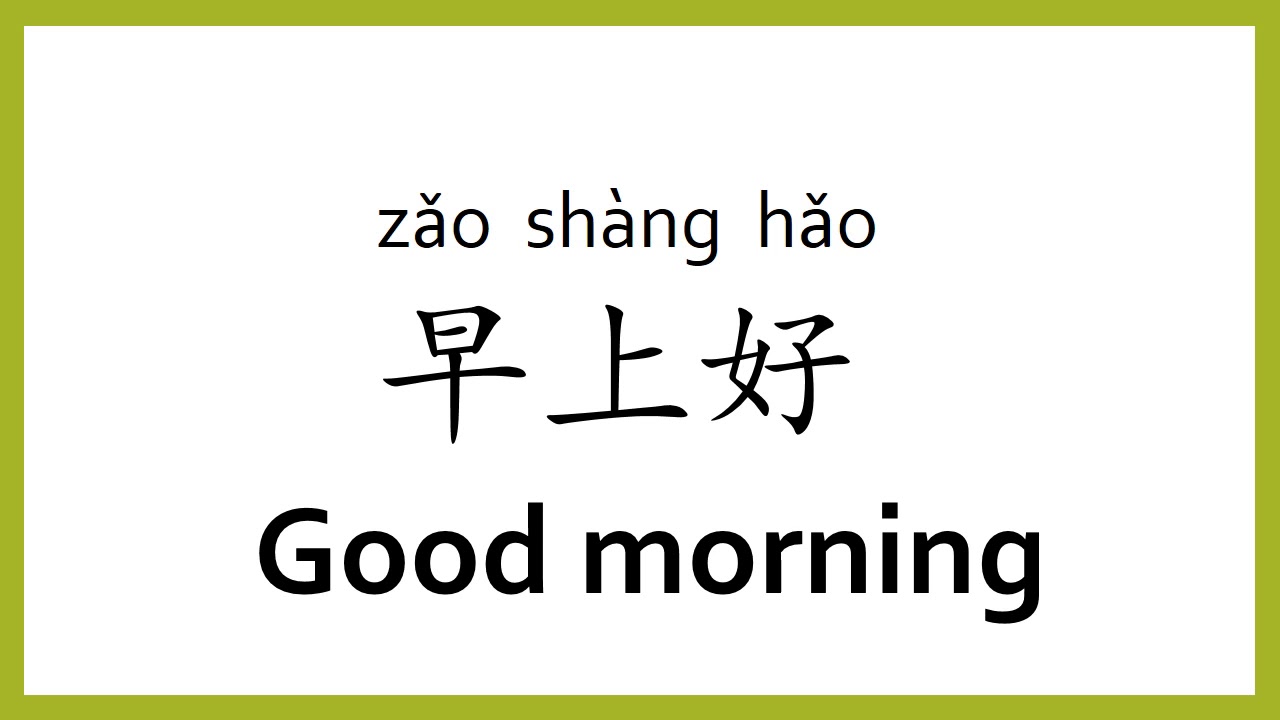Good Morning in china

Good Morning in China: A Cultural Exploration of Greetings and Traditions
Good morning! As the sun rises and a new day unfolds, it’s the perfect time to explore how the people of China greet each other in the morning. This fascinating country, rich in history and culture, has unique ways of expressing goodwill and starting the day on a positive note.
The Traditional Chinese Greeting
In Mandarin, the most widely spoken language in China, “Good Morning” is translated as “早上好” (zǎo shàng hǎo). This phrase combines “早上” (zǎo shàng), meaning “morning,” and “好” (hǎo), meaning “good.” It’s a simple yet meaningful way to wish someone a pleasant start to their day.
The Importance of Morning Greetings in Chinese Culture
In Chinese culture, greetings are more than just polite conversation; they are an essential part of social interactions. Wishing someone a good morning is a way to show respect and strengthen relationships. It sets a positive tone for the day ahead and reflects the importance of community and connection in Chinese society.
Variations of Morning Greetings
While “早上好” is the standard phrase, there are several other ways to greet someone in the morning, depending on the context and relationship:
- 早安 (zǎo ān) – This is another common way to say “good morning,” often used in more casual or friendly settings.
- 您早 (nín zǎo) – This is a more formal greeting, where “您” (nín) is a respectful way to say “you.” It’s commonly used in professional settings or when addressing elders.
- 早 (zǎo) – This is a very informal and quick way to greet someone in the morning, similar to saying “morning!” in English.
Morning Routines and Customs in China
In addition to greetings, mornings in China are filled with various customs and routines. Many people start their day early, often engaging in activities such as:
- Tai Chi: A traditional Chinese martial art practiced in parks, promoting physical and mental well-being.
- Breakfast: A crucial meal in Chinese culture, with popular options including congee, steamed buns, and soy milk.
- Morning Markets: Many locals visit fresh markets to buy ingredients for the day, fostering a sense of community and supporting local businesses.
Sending Good Morning Wishes
If you want to share your good morning wishes with friends or family in China, you can enhance your message with thoughtful additions. Consider including a positive quote, a personal touch, or even a beautiful image to accompany your greeting.
Example Good Morning Messages
- “早上好! 祝你今天充满阳光和好运!” (Good morning! Wishing you a day filled with sunshine and good luck!)
- “早安! 愿你的每一天都如这美好的早晨般灿烂!” (Good morning! May every day be as radiant as this beautiful morning!)
- “您早! 希望今天的工作顺利!” (Good morning! Hope your work goes smoothly today!)
Conclusion
Greet someone with a heartfelt “早上好” and embrace the beauty of morning traditions in China. Understanding these cultural nuances not only enriches your communication but also fosters a deeper connection with those around you. Whether you’re living in China or simply sharing a moment with a Chinese friend, these morning greetings are a wonderful way to spread positivity and warmth.
For more insights on greetings and cultural customs around the world, stay tuned to GoodMorningWishes.net for tips and inspiration to make your mornings brighter!














